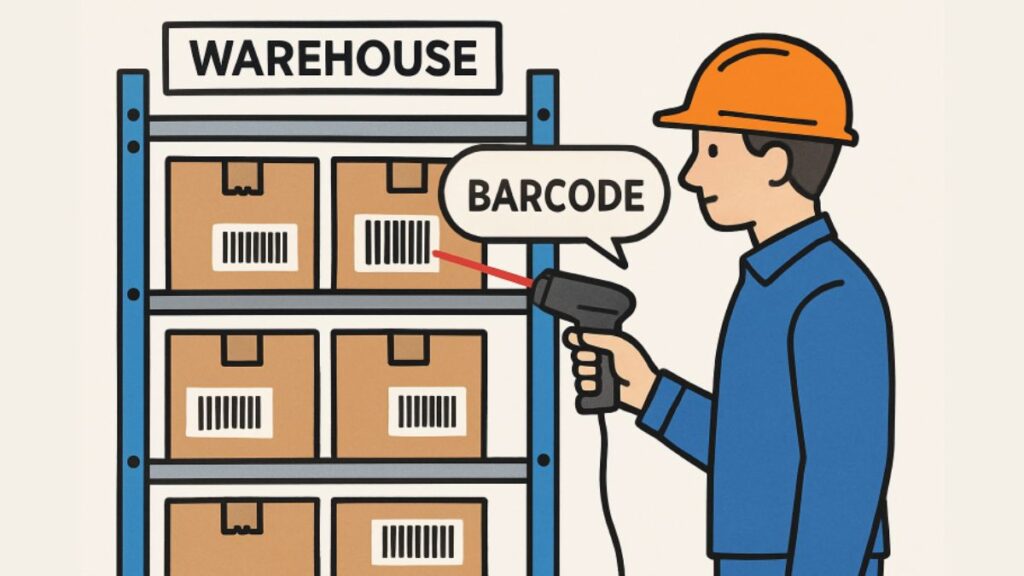Barcode technology is revolutionizing the business landscape by simplifying product identification, tracking, and data management, enabling businesses to optimize processes from warehousing to retail checkout. As supply chains and inventory requirements become more complex, mobile technology solutions for warehouses are crucial for modernization. Barcode systems offer sophisticated analytics, real-time insights, and customer-facing interactivity. As regulatory pressures and consumer expectations rise, companies are integrating barcode-based solutions to maintain their competitive edge and ensure traceability. Integrating traditional identification methods with cutting-edge technology supports sustainable business development and resilience in the competitive business environment.
Enhancing Inventory Management
Barcode systems are essential for effective inventory management, allowing businesses to monitor stock in real-time, reducing risks of overstocking or running out of critical items. By tagging products with unique barcodes, manual counting and error-prone spreadsheets can be replaced with automated checks and digital dashboards. This visibility helps forecast demand, streamline replenishment, and prevent loss from shrinkage, spoilage, or theft. Barcode scanning reduces errors and liberates workers from labor-intensive data entry tasks, allowing teams to focus on higher-value activities, driving innovation and customer satisfaction. Leveraging mobile technology solutions for warehouses further enhances the scalability and efficiency of real-time tracking in dynamic environments.
Streamlining Supply Chain Operations
Barcodes are instrumental in streamlining supply chain activities. Each barcode functions as a digital passport, following a product from production to point of sale. This unique identification provides granular visibility into every stop along the journey, helping identify bottlenecks, reduce lead times, and mitigate risks. Improved traceability strengthens relationships with suppliers, partners, and regulators by enabling complete transparency, which is vital for audit trails and compliance with global standards.
Improving Data Accuracy and Reducing Errors
Human error in manual data entry can lead to costly mistakes, delays, and even safety concerns, especially in industries like healthcare and food production. By automating data capture through barcode scanning, businesses massively decrease the margin of error and maintain higher standards of accuracy. Timely, error-free information is essential for meeting industry regulations and supports smarter decision-making based on reliable analytics.
Integrating with Advanced Technologies
The true strength of barcode technology lies in its ability to evolve. Integrating barcodes with Artificial Intelligence (AI) and the Internet of Things (IoT) enables a new era of smart, connected operations. AI-powered analytics can reveal patterns and provide forecasting abilities that surpass traditional reporting. Meanwhile, IoT-enabled barcode scanners and sensors capture real-time data at critical points across the value chain. This synergy future-proofs business infrastructure and supports seamless scaling as market needs shift.
Adopting 2D Barcodes
The transition from legacy 1D barcodes to 2D formats like QR codes is underway, driven by initiatives such as the global “Sunrise 2027” campaign. 2D barcodes hold much more data, accommodating detailed product histories, batch information, and interactive consumer engagement. For retailers, this means delivering robust supply chain transparency and direct access to information, strengthening consumer trust. Combined with smartphone adoption, this new generation of barcodes revolutionizes in-store and online experiences. For a look at how QR codes are shaping customer engagement beyond traditional uses,
Enhancing Customer Experience
Barcode technology plays an integral role in elevating the customer journey. Self-checkout kiosks, mobile apps, and enhanced product labeling streamline and personalize the retail shopping process. Customers instantly access information such as product origins, nutritional facts, or special promotions by scanning a barcode, fostering engagement and building loyalty. This informed, interactive experience stands at the forefront of modern commerce, aligning with contemporary expectations for speed and transparency.
Ensuring Compliance and Traceability
Barcodes are essential for ensuring regulatory compliance and product safety in highly regulated sectors like pharmaceuticals, food, and electronics manufacturing. Comprehensive traceability supports routine audits and rapid and targeted recall initiatives when necessary. By recording every handoff and transformation, barcode systems safeguard quality control and help protect consumers. This capability is becoming increasingly important as supply chains expand and regulations tighten globally.
Looking Ahead: The Future of Barcode Technology
The evolution of barcode technology is far from over. As businesses adopt blockchain for enhanced transaction transparency and leverage cloud-based tools for mobile scanning and data management, barcodes will remain a cornerstone of operational efficiency. Upcoming advancements promise even greater integration, flexibility, and security, equipping businesses of all sizes to meet tomorrow’s challenges confidently.
Barcode technology stands at the crossroads of operational excellence and innovation, driving transformation across every sector. Its proven ability to improve efficiency, accuracy, and customer satisfaction makes it an indispensable asset for organizations navigating the digital future.






